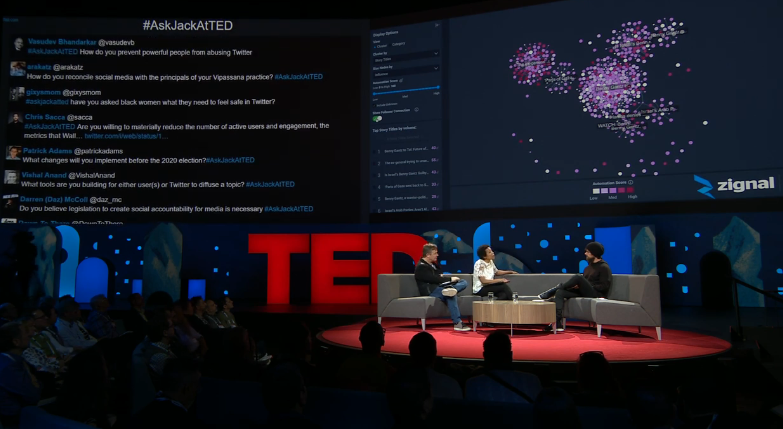What we could do instead is allow you to follow an interest, follow a hashtag, follow a trend, follow a community,
我们可以改进的地方在于让你关注一项兴趣爱好,关注一个标签,关注一种趋势,关注一个群体。
which gives us the opportunity to show all of the accounts, all the topics, all the moments, all the hashtags
通过这种方式,我们可以给你推荐与你兴趣有关的所有账号、所有话题、
that are associated with that particular topic and interest, which really opens up the perspective that you see.
所有时刻以及所有标签,这可以开拓用户的视野。
But that is a huge fundamental shift to bias the entire network away from just an account bias towards a topics and interest bias.
但要从只关注特定账号、话题和兴趣爱好,转而关注整个社交网络,这是一个非常巨大的转变。
Because isn't it the case that one reason why you have so much content on there is a result of putting millions of people around the world
但之所以推特上内容丰富,是因为推特使全球很多人在“角斗场”中相互竞争,
in this kind of gladiatorial contest with each other for followers, for attention? Like, from the point of view of people who just read Twitter,
看谁有更多的粉丝,获得更多的关注吗?我是说,对于那些关注者而言,

that's not an issue, but for the people who actually create it, everyone's out there saying, "You know, I wish I had a few more 'likes,' followers, retweets."
这并不是什么大问题。但对于那些博主而言,每个人都在说,“你知道吗,我希望我也能有更多的赞、更多的粉丝和转发,”
And so they're constantly experimenting, trying to find the path to do that.
所以他们不断地尝试,希望通过某种方式来做到这一点。
And what we've all discovered is that the number one path to do that is to be some form of provocative, obnoxious,
并且我们发现,能达成这个目的最有效方法,就是发表挑衅的、讨厌的、
eloquently obnoxious, like, eloquent insults are a dream on Twitter, where you rapidly pile up
词藻华丽而令人憎恶的言论,比方说,在推特上花式骂人,如果你不停地侮辱他人,
and it becomes this self-fueling process of driving outrage. How do you defuse that?
最终愤怒的情绪就会自然不断地蔓延到其他人。你要怎么解决这个问题?













